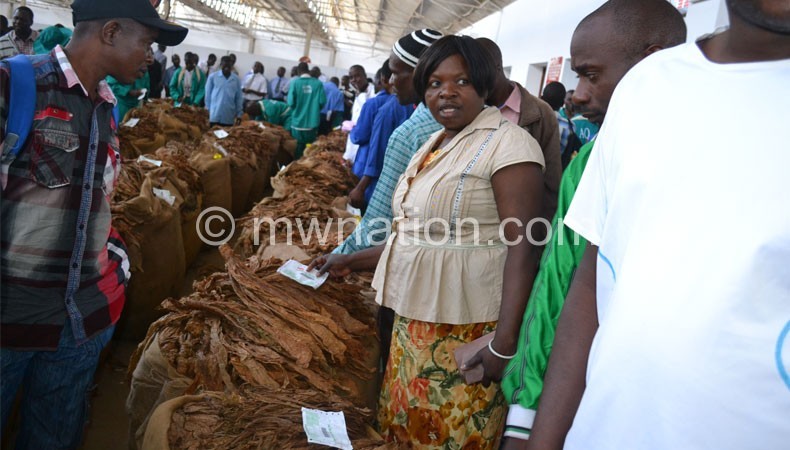Tobacco buyers defy IPS, auction sales plan
Tobacco buyers have bought 84 percent of the country’s leaf on contract or integrated production system (IPS) with the remaining 16 percent sold under the traditional auction system, an AHL Group sales sheet has shown.
This is despite an earlier agreement that 70 percent of the leaf would be sold under IPS while 30 percent on auction, according to the tobacco auctioneer.

AHL Group general manager Moses Yakobe said in an interview on Thursday this is one of the challenges tobacco farmers have faced at the auction floors this year which has seen over 1.3 million kilogrammes (kg) of tobacco yet to be sold at Lilongwe Auction Floors.
This state of affairs has created panic among tobacco farmers that buyers will buy the remaining tobacco at lower prices because the farmers will have nowhere to sell their crop.
When IPS was adopted in 2012, the plan was to have 60 percent of the tobacco—the country’s main foreign exchange earner—sold under IPS while the remaining 40 percent sold under auction.
This year’s tobacco marketing season has been beset with challenges, including high rejection rate on flue cured tobacco sold under action, low auction burley being delivered and sold as well as removal of some growers from contract despite not exhausting the contracted volumes.
Yakobe said there were a number of challenges that affected growers, including selective treatment of contracted farmers and corruption through associations that were recruiting farmers on behalf of buying companies.
“There were high expectations from farmers during the onset of this year’s marketing season, but later on challenges cropped up. The 2015 sales plan was that 70 percent of tobacco be bought under contract while 30 percent be purchased under auction system.
“However, actual sales proportions are quite contrary and some farmers who grew their tobacco on their own without support from buyers ended up selling their tobacco under contract,” he said.
Yakobe said some transporters were coercing farmers to sell their tobacco under contract system by demanding K1 000 ($2) so that their bales should be offloaded in good time.
“We even caught an individual from a certain grower association receiving K50 000 ($88). We reported him to relevant authorities. We get various tip-offs on alleged malpractices by transporters and other individuals and we blow the whistle accordingly,” he said.
On tobacco prices, Yakobe said the overall, average price increased each day due to increased competition on burley auction sales thanks to additional buyers on the market.
“The average price per kilogramme by June 2015 started to reduce when compared with 2014. The average price on burley contract sales during the same period was $162.73 per kilogramme [kg] compared to $161.366 in 2014,” explained Yakobe.
Tobacco Control Commission (TCC) chief executive officer Bruce Munthali said on Friday there are many challenges affecting the tobacco sector and players in the industry have to solve them once they crop up because tobacco is a strategic crop to the country’s economy.
“As a regulator, we need to protect our farmers. If farmers are taking their tobacco from contract to auction and vice versa then that is their choice but as government, we are there to protect our farmers so that they are not taken advantage of by anybody,” he said.
Munthali said, as an industry, they will be meeting in October to see how they can iron out the challenges highlighted by AHL Group and other players in the sector to ensure that farmers benefit from their sweat.





